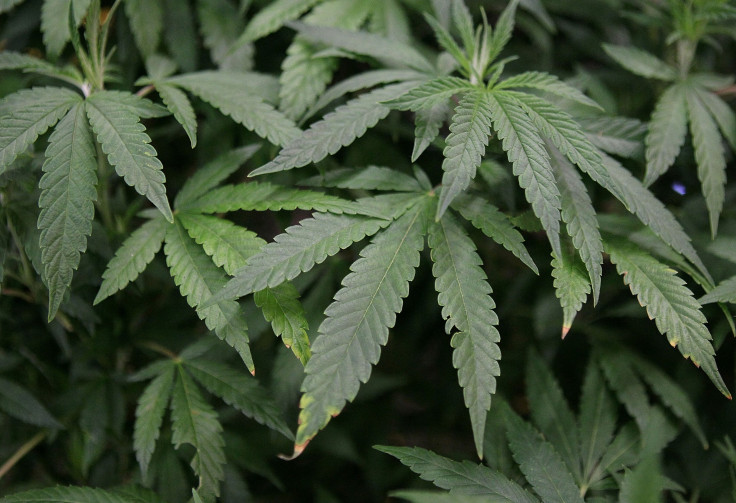Marijuana May Cause Damage To Brain, Research Suggests

Marijuana is said to cause permanent damage to the brain and can make users dependent on it, a new study suggested. A team of neuroscientists wanted to determine what makes marijuana addictive through long-term exposure to the drug, according to research published Monday in the journal JNeurosci. Scientific research has previously confirmed that frequent marijuana use can lead to addiction, but this study provides further detail into why this outcome is possible.
Researchers at Brigham Young University's (BYU) neuroscience department injected teenage male mice test subjects with tetrahydrocannabinol (THC) — marijuana's active ingredient — for a weeks time. BYU researchers examined the mice's brain's ventral tegmental area (VTA), a cluster of neurons positioned near the midline in the midbrain. This section is said to release dopamine when activated by way of drug use, including opioids, alcohol and marijuana.
"There are currently no good targets to treat cannabis use disorder," Jeff Edwards, an associate professor at BYU and the study's lead researcher, told International Business Times Tuesday. "Therefore, a better understanding of the cellular effects of THC in the reward system of the brain may help provide targets to potentially treat this disorder."
The research team evaluated a type of cell in the VTA called a gamma-aminobutyric acid (GABA) cell, which is something marijuana researchers haven't truly examined before now. GABA cells act as a neurotransmitter within the central nervous system. When released into the brain, it manages the levels of dopamine.
Edwards' team discovered that GABA cells faced complications regulating dopamine. Researchers also found that after a week, the mice came across issues recovering from their synapses. These complications didn't become apparent through a single injection of the drug, but continuous use led to this outcome.
"As synaptic modifications by drug of abuse are often tied to addiction, this data suggest a possible mechanism for the addictive effects of tetrahydrocannabinol in juvenile-adolescents, by potentially altering reward behavioral outcomes," the researchers wrote in the study's abstract.
The study's findings can't be directly associated with human health because it was conducted on mice. It does, however, help to provide a better understanding of the potential repercussions it may have on the human brain, particularly adolescent minds.
"It appears that adolescents are more negatively impacted by marijuana use than adults," Edwards told IBT. "As our studies were carried out in juvenile/adolescent aged mice, we hope that what we learn in rodents may help us understand how THC may be impacting the human adolescent brain."
Edwards added, "As states look to legalize marijuana for recreational and medicinal purposes, it will be important to understand the effect THC has on the adolescent brain."
Dependence on marijuana occurs as the brain adapts the drug's ingredients, which leads the user to intake more of it. Individuals who began taking marijuana in their adolescent years, whose minds are still in the developmental stage, are said to be more likely to succumb to the addictive properties of the drug, as the study had suggested.
"Estimates of the number of people addicted to marijuana are controversial, in part because epidemiological studies of substance use often use dependence as a proxy for addiction even though it is possible to be dependent without being addicted," the National Institute of Drug Abuse wrote on its website. "Those studies suggest that 9 percent of people who use marijuana will become dependent on it, rising to about 17 percent in those who start using in their teens."
© Copyright IBTimes 2024. All rights reserved.












